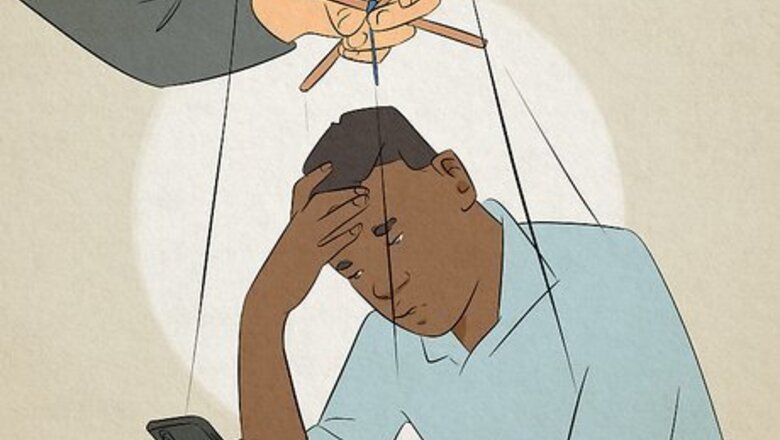
views
- Love bombing then ghosting is a pattern of abusive behavior often used by narcissists to manipulate and gain control over another person.
- Someone who engages in these behavioral patterns may not always have malicious intentions. They could be insecure or have abandonment issues from childhood.
- Remember that being love bombed then ghosted is not your fault. To heal, reconnect with your family and friends and give yourself time to process your emotions.
Reasons Why People Love Bomb Then Ghost
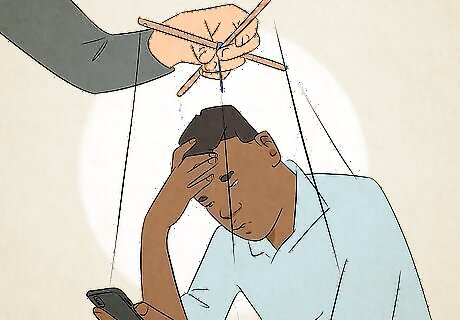
They’re manipulative. Love bombing and then ghosting is an unhealthy pattern of behavior that manipulative people use. Psychologically speaking, people who engage in this behavior are narcissists (or they have narcissistic tendencies). Love bombing gives them a rush because it makes the other people dependent on them, and they covet that kind of influence over others. They enjoy the ghosting part just as much as the love bombing for the same exact reason—they love the feeling of power that it gives them.

They have low self-esteem. Not all love bombers have harmful intentions—it's possible that they’re just lonely and insecure, and showering you with attention is their way to keep you close. The love bomber's innate insecurities eventually warp their enthusiasm until it turns into fear, though, and that’s where the ghosting part comes in. Since they don’t want anyone to see their flaws and insecurities, they'll cut the relationship off with no warning, seemingly out of nowhere.

They’ve met someone else. While love bombing is generally considered to be negative behavior regardless of intention, it’s possible that the person was genuinely enthusiastic about coupling up with you—at first. They’re often opportunists, though, so if they meet someone else who they think they can manipulate or influence more easily, they might go radio silent on you with no warning. Since they’re more concerned with getting their own needs met, they feel completely justified in doing this.

They’re scared of commitment. This is another case where the love bomber may or may not have had malicious intent, but ultimately, they ghosted you because they were afraid to connect and be part of a real relationship. Additionally, if they commit to you, they think that they'll be “stuck” with you—ghosting allows them to get off the hook without consequences, and then they can start the same harmful cycle all over again with someone new. It’s possible that a person with commitment issues experienced abandonment in childhood, which was traumatic for them. That trauma can continue to affect their ability to forge connections with people as they get older. If you're the love bomber and wondering if you have abandonment issues, take our helpful quiz to get more insight.
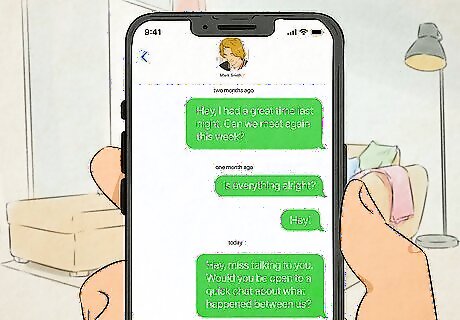
They’re trying to avoid confrontation. Oftentimes, people who engage in this sort of behavior have deep-seated insecurities about having interactions with others—especially negative ones. Even after a period of love bombing, this person will then ghost you because it’s just easier and more convenient for them to drop off the face of the earth rather than face you.
Love Bombing and Ghosting at a Glance

Love bombing is showering someone with over-the-top attention. The ultimate goal of a love bomber is to gain control over the other person by manipulating their emotions. Love bombing typically occurs right at the start of a relationship, possibly even immediately after the two people meet. The love bomber lavishes over-the-top adoration onto their victim and rushes them into an intense relationship before they even know each other well. While love bombing is considered to be a form of psychological and emotional abuse, it's possible for someone to love bomb another person without necessarily having malicious intent. Common signs of love bombing include: Excessive compliments Non-stop communication Expensive gifts Early and intense declarations of love Attempts to isolate the other person
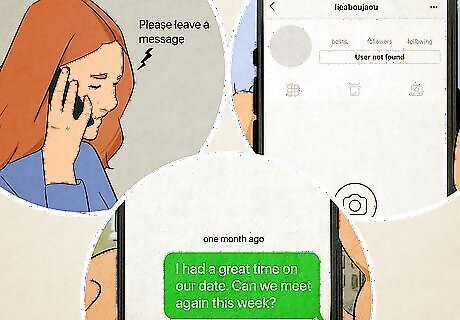
Ghosting is suddenly cutting off contact with no explanation. Being ghosted is a frustrating and confusing experience, and being ghosted after weeks or months of love bombing can be particularly jarring. Generally, there's no warning whatsoever—the person suddenly stops responding to your messages and calls and you never get an explanation or closure. It’s especially common in online dating, but it can happen at any stage in a relationship. Common signs of ghosting include: Never texting you back Sending your calls straight to voicemail Blocking you from their social media Leaving the premises if they see you in public Dodging any and all attempts by you to get in touch with them
Dealing with Being Love Bombed Then Ghosted

Remember that being love bombed then ghosted is not your fault. What you went through was abuse, plain and simple, and there’s nothing you could have possibly done to “deserve” it. The only person who’s at fault in this situation is your abuser. A person with narcissistic tendencies thrives on manipulating others and they’re very good at it. The red flags can be tough to spot, but you know what to look for in the future. Just because someone gives you compliments doesn't mean they're a love bomber. The difference is in how dramatic the flattery is (especially since the person doesn't know you well yet). For example, a love bomber might say over-the-top things like, "You're the answer to my prayers" or "No one on earth compares to you."

Reconnect with your family and friends. If your love bomber worked hard to isolate you from friends, then it’s possible they succeeded. Reforging these connections is up to you, though, so reach out to your loved ones to talk, catch up, and hang out. Tell them what you went through and lean on them like you used to. They’ll welcome you back with open arms. If it's been a while since you've spoken to them, try shooting them a text first. You might say, "I was just thinking about you and I'd love to catch up soon—mind if I give you a call this weekend? I miss you and hope you're doing well."
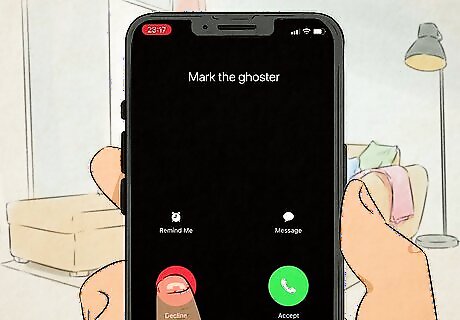
Refuse any and all communication with this person. Abusers with these behavioral issues often try to rekindle relationships after some time has passed. This is also part of their pattern, and they’ll continue the cycle for as many times as they can get away with. Don't let this person back into your life. Block them if they reach out and ignore anything they say—remember, narcissists have silver tongues and will do their best to talk their way back into your good graces. It's tempting to ask for closure after being ghosted, but this wasn't a simple ghosting. Being love bombed then ghosted is a pattern of behavior with no good explanation—it's abuse. Be vigilant on social media, too, since love bombers often use those spaces to ensnare their victims.
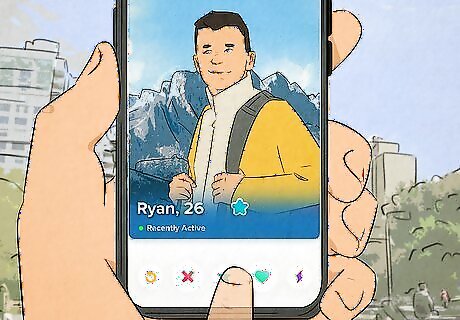
Pursue other relationships when you feel ready. After being love bombed then ghosted, it’s perfectly understandable to be wary of relationships in the future, but don’t let this experience prevent you from finding love. Once you process the situation and start feeling better, put yourself out there again! If you continue avoiding relationships out of fear, the love bomber still has control over you. Plus, you may miss out on meeting someone truly special. Dating websites and apps are a great way to ease your way back into the dating world. Take the time to vet anyone you match with and get to know them before agreeing to meet up in-person. Be on the lookout for love bombing tendencies as you're messaging each other (this behavior tends to begin early on).

Consider seeing a therapist if you’re still struggling with what happened. Love bombing and ghosting are abusive behaviors that can inflict significant trauma on the victim—you. It's normal to experience feelings of sadness, anxiety, anger, and confusion after going through this ordeal, and it’s not always easy to just bounce back after the experience. A therapist can help you navigate and process these difficult feelings, as well as provide tools you can use to heal and move on.
Avoiding Being Love Bombed then Ghosted

Set boundaries early in your relationships. Now that you know what love bombing looks like, you’ll be able to recognize this pattern of behavior in the future. If a new potential partner starts showering you with over-the-top emotion or tells you that they love you after 2 dates, you may want to nip the relationship in the bud. If you want to give the person the benefit of the doubt, though, set firm boundaries so they know what kind of behavior is unacceptable to you. If they continue love bombing you and crossing your boundaries, break it off with them before they get a chance to manipulate or ghost you.

Maintain your relationships with friends and family. It’s easy (and even normal) to get a little distracted by a new romance and let your other relationships lapse a little. Just keep in mind that this can also be a manipulation tactic, and make it a point to stay connected with the important people in your life. Your loved ones can also provide objective opinions about anyone new that you’re dating, so don’t be afraid to ask them for their advice or impressions.

Trust your gut feeling about future potential partners. If something feels off or seems to good to be true about someone you meet, it probably is. Don't push that feeling down or ignore it! It can be tough to spot the red flags when you’re swept up in all the new and exciting emotions, so try to take a step back from the relationship and re-evaluate before moving forward. If you feel uncomfortable in any way, break off the relationship before it becomes abusive.













Comments
0 comment